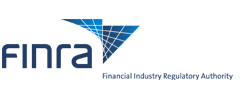
FINRA Warns Investors: Don't "Swipe" Out Your Retirement Savings With 401(k) Debit Cards
Washington, DC — The Financial Industry Regulatory Authority (FINRA) today warned investors about the potential pitfalls of using 401(k) debit cards to borrow money from their retirement funds. The introduction of the 401(k) debit card has made borrowing from a retirement savings account as easy as swiping and spending - a tempting convenience that can have significant repercussions on the card user's future retirement security.
FINRA's new Investor Alert, 401(k) Debit Cards — Think Before You Swipe, explains that a 401(k) debit card is like a debit and credit card rolled into one. It's like a debit card because it allows you to access and spend your own money, rather than someone else's. It's like a credit card because you are billed each month for the charges you ring up. That bill includes a minimum payment due plus interest, fees and an additional interest charge that's paid to the credit card vendor servicing the account.
"Regardless of how easy it might be to do, borrowing against your retirement savings should be a last resort - and done only in emergency situations," said John Gannon, FINRA Senior Vice President for Investor Education. "If a debit card is one of the options in your 401(k) plan, be mindful of the hazards that can come with using the card - from a smaller nest egg when you retire to a possible loan default that can deal a serious financial blow. Remember that with every swipe comes the real potential to wipe out a portion of your hard-earned retirement savings."
If your 401(k) plan allows debit cards, your employer must approve the amount you may borrow. The maximum loan amount under IRS rules is generally $50,000 or 50 percent of your vested account balance, whichever is less. The amount your employer approves is set aside in a separate money market fund and will generally earn dividends on a tax-deferred basis until you use the debit card or write a check against the account. Your returns in this account may not be as high as those that your other 401(k) assets could earn. For example, between the years 1926 and 2007, U.S. large cap stocks on the whole earned an annual average return of 10.4 percent, whereas money market funds earned 3.7 percent.
In a more traditional 401(k) loan, the interest you pay goes right back into your 401(k) account and can be paid automatically through payroll deduction — making it less likely you'll fall behind as long as you are employed. But payroll deduction is not currently available for 401(k) debit cards. So you pay it each month like your other bills — and only part of the interest goes back into your 401(k) account, while the remainder goes to the debit card vendor.
The Alert 401(k) Debit Cards — Think Before You Swipe includes a checklist of things to consider before using a 401(k) debit card. The Alert is available online at www.finra.org/investor.
Additional information about 401(k) investing and retirement account loans are available online - including the FINRA's Smart 401(k) Investing and Think Twice Before Cashing Out Your 401(k), and the IRS Publication Retirement Plan FAQs Regarding Loans.
To receive FINRA's Investor Alerts and other important investor information via email, sign up for FINRA's Investor News.
FINRA, the Financial Industry Regulatory Authority, is the largest non-governmental regulator for all securities firms doing business in the United States. Created in 2007 through the consolidation of NASD and NYSE Member Regulation, FINRA is dedicated to investor protection and market integrity through effective and efficient regulation and complementary compliance and technology-based services. FINRA touches virtually every aspect of the securities business—from registering and educating all industry participants to examining securities firms; writing and enforcing rules and the federal securities laws; informing and educating the investing public; providing trade reporting and other industry utilities; and administering the largest dispute resolution forum for investors and registered firms. For more information, please visit our Web site at www.finra.org.
